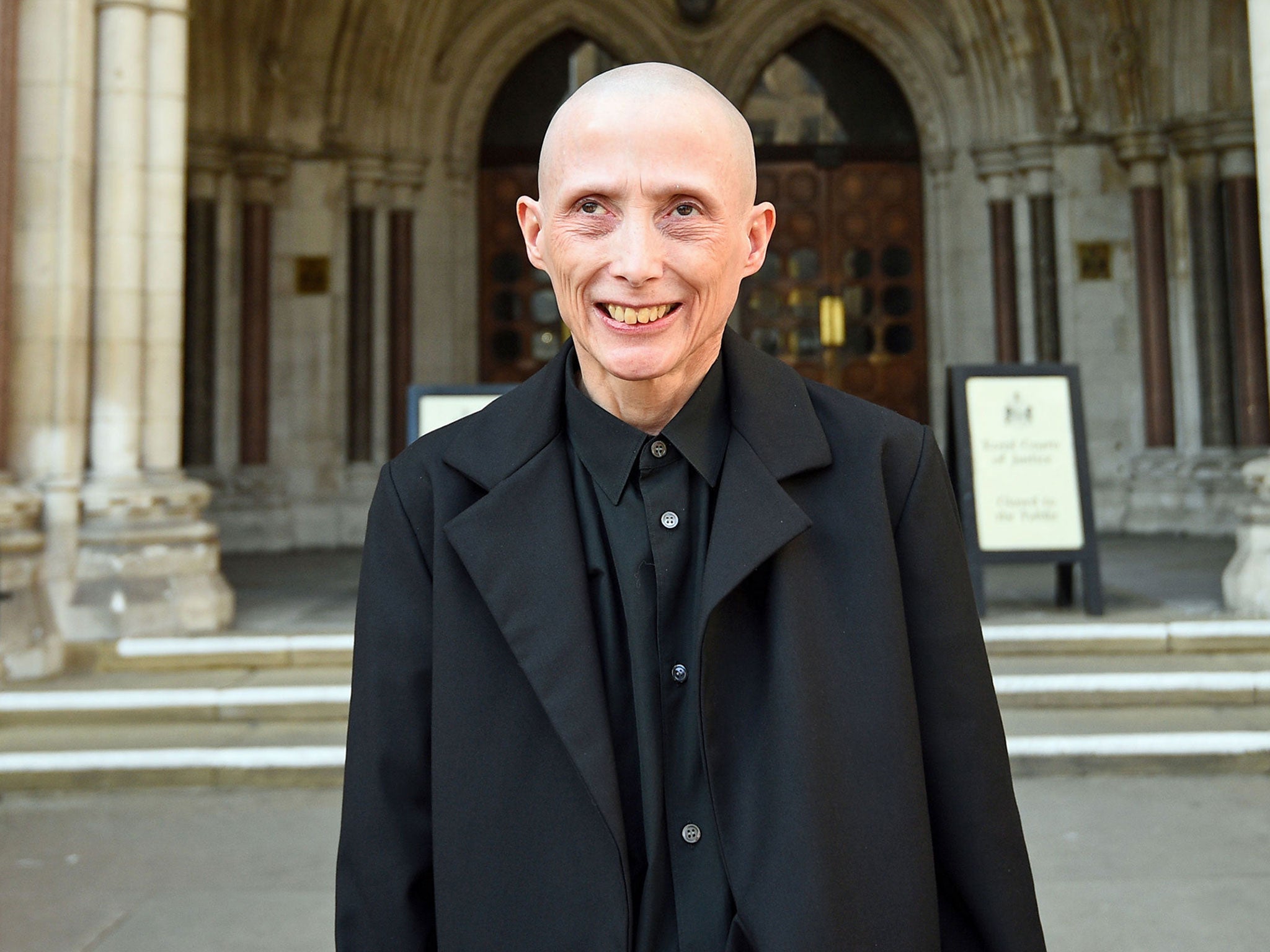UK's refusal to grant gender-neutral passports could be ruled 'unlawful' by High Court
Campaigner submits that current policy is discriminatory and violates human rights

Your support helps us to tell the story
From reproductive rights to climate change to Big Tech, The Independent is on the ground when the story is developing. Whether it's investigating the financials of Elon Musk's pro-Trump PAC or producing our latest documentary, 'The A Word', which shines a light on the American women fighting for reproductive rights, we know how important it is to parse out the facts from the messaging.
At such a critical moment in US history, we need reporters on the ground. Your donation allows us to keep sending journalists to speak to both sides of the story.
The Independent is trusted by Americans across the entire political spectrum. And unlike many other quality news outlets, we choose not to lock Americans out of our reporting and analysis with paywalls. We believe quality journalism should be available to everyone, paid for by those who can afford it.
Your support makes all the difference.High Court judges are considering a claim that the government’s refusal to grant gender-neutral passports is unlawful.
The opening of a two-day judicial review heard that the application process, which currently requires people to list themselves as male or female, is “inherently discriminatory” and can be updated without any change to British law.
Christie Elan-Cane, who campaigns to achieve legal and social recognition for non-gendered identity, is being supported by Human Rights Watch in the challenge.
The issue of “X” or unspecified passports is a focal point of the campaign in Britain, with the documents already available in countries including Australia, Canada, New Zealand, India, Pakistan and Malaysia, and recognised by the UK Border Force.
Kate Gallafent QC told the High Court Britain’s current policy breaches the right to respect for private life, and the right not to be discriminated against on the basis of gender or sex, under the European Convention on Human Rights (ECHR).
"For the claimant, obtaining and using a passport currently involves making a false declaration as to the nature of the claimant's gender identity, which causes the claimant considerable distress,” she said.
"The lack of a non-gender specific passport option impacts on the claimant's ability to obtain and use a passport on equal terms with persons who identify, and are identified, solely in terms of male or female."
Ms Gallafent told Mr Justice Jeremy Baker that the impact of the passport office's refusal to provide X passports "affects not only non-gendered persons such as the claimant, but a broad section of the public”, including intersex and transgendered people and other individuals with gender dysphoria.
The lawyer compared the practice to requiring a person of Asian ethnicity to “declare their ethnicity to be either 'white' or 'black', or requiring a bisexual person to declare their sexual orientation to be either 'heterosexual' or 'homosexual'".
She asked the judge to quash the policy and order that it be “reconsidered according to the law”.
Lawyers representing the home secretary, Amber Rudd, argued that the case should be dismissed and said Britain’s policy does not affect ECHR rights.
A written submission from James Eadie QC argued that any interference with the right to respect for private life would be justified by the need to “maintain an administratively coherent system for the recognition of gender”, ensure security and combat identity theft and fraud.
Mr Eadie claimed any change would incur “significant administrative and financial costs” to HM Passport Office and have a far wider impact.
"The defendant [Home Secretary] does not accept that the issuing of passports with an 'X' marker could be done without regard to the implications of recognising non-binary status across government,” he said.
"The amendment to legislation and to policy would incur a huge administrative burden as well as a significant burden on parliamentary time. There would be associated financial costs."
But Elan-Cane, who attended Wednesday’s hearing, said expression of people’s gender identity was a fundamental human right and pointed out a survey estimating that up to 1 per cent of the UK population – 650,000 people - do not identify as male or female.
"Non-gendered people are often treated as though we have no rights,” the campaigner added.
"The UK's passport application process requires applicants to declare whether they are male or female.
"It is inappropriate and wrong that someone who defines as neither should be forced to make that declaration."
The position is supported by several MPs, including Liberal Democrat Norman Lamb, who has tabled parliamentary motions demanding the introduction of “X” passports with support from across the political spectrum.
Additional reporting by PA
Join our commenting forum
Join thought-provoking conversations, follow other Independent readers and see their replies
Comments